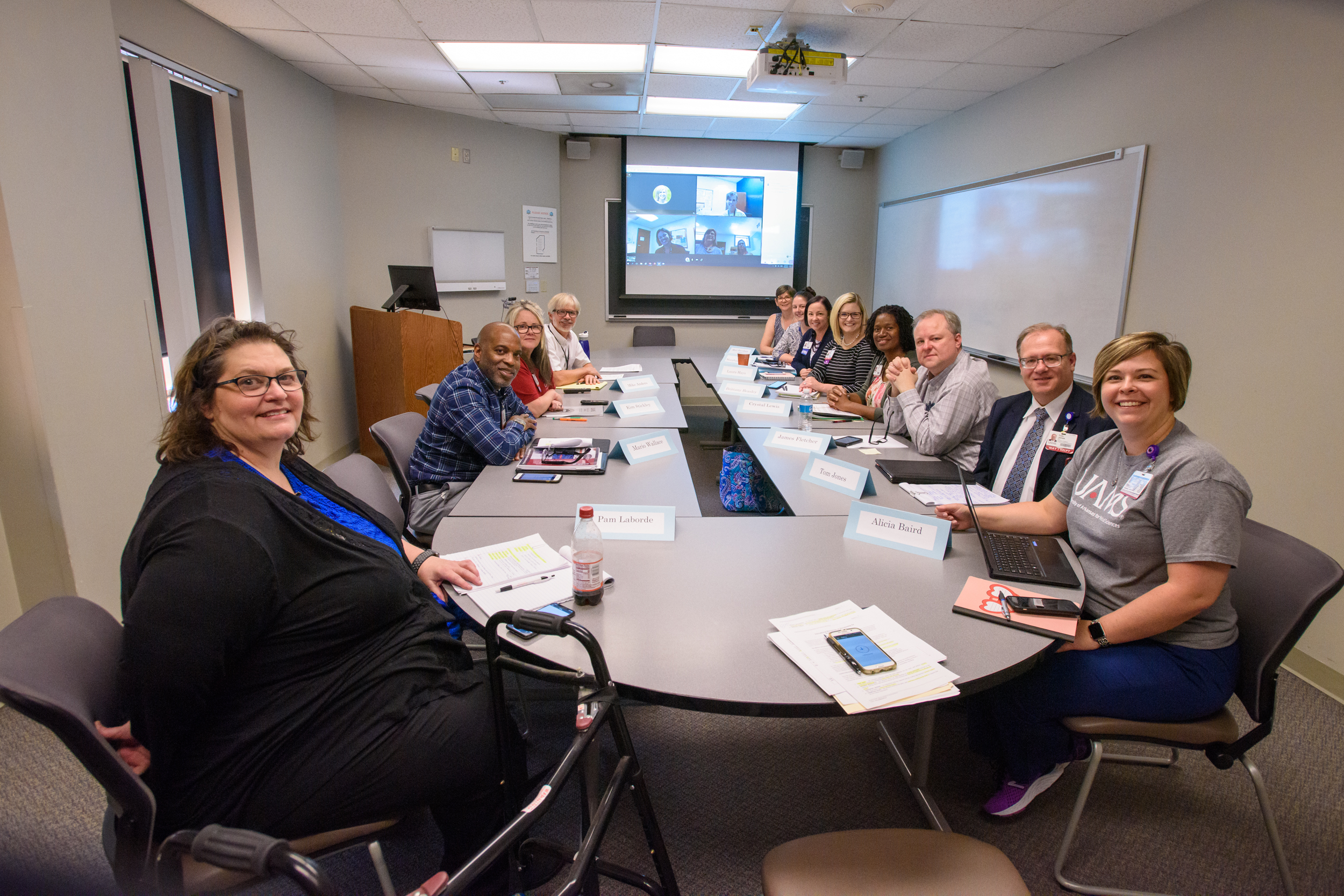Innovation is Focus of Storied Faculty Development Program
| A storied, 24-year-old program in the UAMS Office of Educational Development (OED), Division of Academic Affairs, is taking steps to help faculty members become better teachers and scholars as they themselves become students and embrace innovative instructional methods in a professional development program called Teaching Scholars.
“Teaching Scholars has a great tradition of advancing the art and science of teaching among the UAMS faculty. Building on that tradition today means prompting innovative scholarship of teaching and learning,” said program director Michael Anders, Ph.D., of OED. “In Vision 2029, the first objective under Education is to advance innovative teaching methods to enhance learning. We’re modeling and encouraging active learning strategies.”
Twenty faculty members, including five on the UAMS Northwest Regional Campus, from three colleges and the Graduate School as well as a staff member from the Office of Human Resources are participating in Teaching Scholars.

Michael Anders, Ph.D., leads a group discussion with Teaching Scholars participants, including those who attend by teleconference.
The program provides mentorship and collaboration by OED faculty members and faculty members from other departments. Participants develop an educational scholarship or research project from idea to implementation, complete with peer-reviewed publication or presentation.
“The mission is to systematically evaluate and disseminate the impact of innovative teaching on learning,” said Steve Boone, Ph.D., the director of OED.
This year, participants are gaining firsthand experience in active learning instruction via both face-to-face and online discussions, while developing their own ideas into scholarship or research.
Participants will collaborate with research librarians to conduct literature searches, and they will submit a proposal to the Institutional Research Board to ensure an ethical approach to their inquiry. They will write as well as peer-review a colleague’s annual OED Educators Academy grant. Participants will interact with a visiting professor, the editor-in-chief for MEDEdPORTAL, a preeminent educational scholarship journal, at the inaugural Teaching Scholars Symposium. The culminating activity is to write a manuscript.
The program has produced benefits for participants. Tiffany Huitt, Ph.D., an associate professor in the College of Health Professions physician assistant program, had multiple peer-reviewed publications related to her team-based learning project, and OED awarded her an Educators Academy grant.
Liudmila Schafer, M.D., an associate professor in hematology-oncology in the College of Medicine, too, received an Educators Academy grant to extend her peer instruction project. She presented the results at the International Cancer Education Conference.
“Universities are expanding the definition of scholarship,” said Anders. “Historically, discovery, or experimental research, was the predominant form of scholarship. While discovery is essential, universities are increasingly valuing additional forms of scholarship.”
That may take the form of applying research findings in real world settings, integrating knowledge interprofessionally, and teaching. While the scholars’ educational projects may take any form, many focus on teaching.
The scholarship of teaching occurs when faculty members disseminate a peer-reviewed educational activity or resource they develop and implement.
“Many UAMS faculty members are busy clinicians or researchers who are also passionate teachers, while for others, teaching is their primary role, to which they are incredibly dedicated,” Anders said.
“One strength of Teaching Scholars is OED has instructional design and eLearning experts,” said Anders. “They collaborate with the scholars to implement innovative instructional design.”
Scholars’ projects vary widely. Examples include studying the impact of an interprofessional digital health simulation for medical, nursing, and pharmacy students on digital health competencies and an evaluation of the UAMS Leadership Institute.
“I learn a lot too,” Anders said. “The scholars work on projects completely new to me. We love working with faculty from diverse programs such as palliative care, biochemistry and molecular biology, physical therapy and nurse practitioners. We learn about their area of interest, as do program participants, which is consistent with the definition of interprofessional education, which is learning with, from and about one another.”
